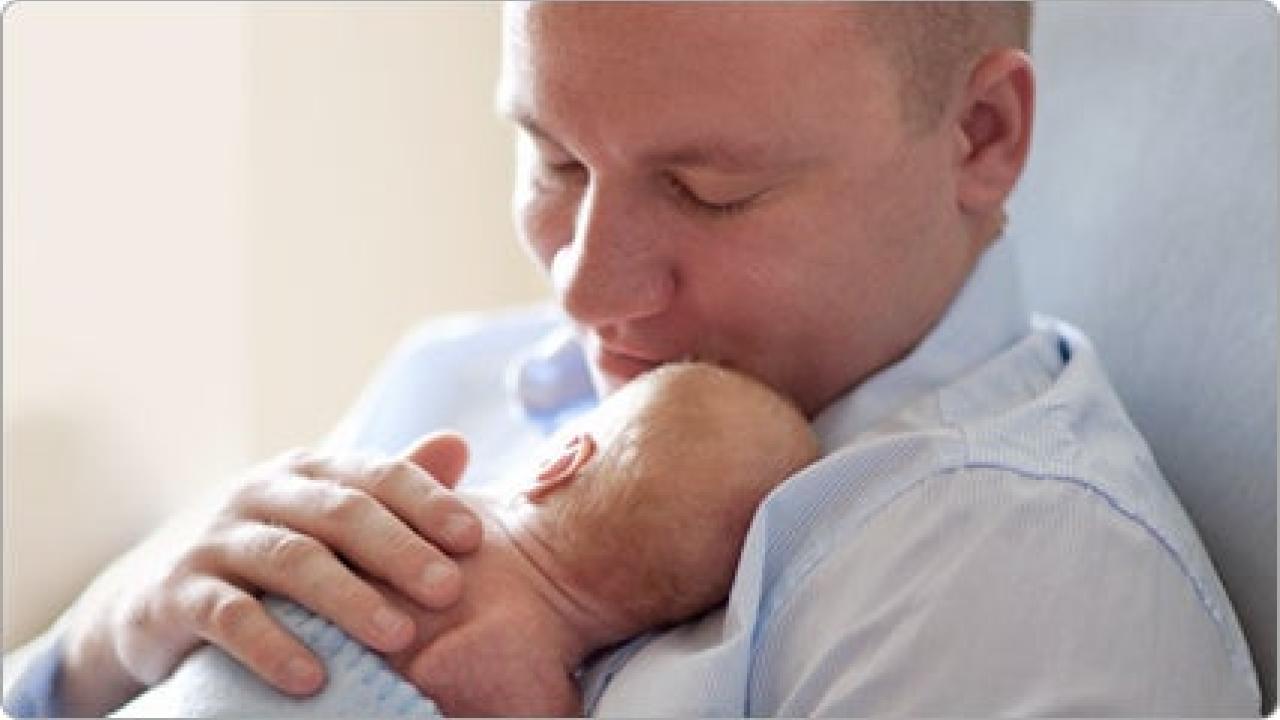Key Points
Respiratory syncytial virus (RSV) is a common virus that infects the lungs and breathing passages.
Almost all babies get it before the age of 2. Your baby can get RSV at any time of year, but it’s most common from Fall to Spring (end of October to April).
Most healthy children get mild, cold-like symptoms, but some babies can be at risk for severe RSV.
Download our Health Action Sheet on RSV.
What are signs and symptoms of RSV?
Signs and symptoms of RSV include:
- Cough
- Fever
- Irritability
- Runny nose
- Sneezing
- Sluggishness or inactive
- Trouble breathing
- Wheezing
Symptoms of RSV usually last about one to two weeks. If you think your baby may have RSV, contact your baby's health care provider.
When should I call my baby’s health provider right away?
Call your baby's health care provider right away if your baby:
- Has a cough that gets worse or coughs up yellow, green or gray mucus
- Has a high fever (a temperature greater than 100.4 F in babies younger than 2 months, 101 F in babies aged 3 to 6 months or 103 F in babies older than 6 months).
- Looks dehydrated
- Doesn't want to eat
- Has thick discharge coming out of their nose
- Has trouble breathing, pauses between breaths or mouth and fingernails look blue
How is RSV diagnosed?
Most of the time, your baby’s health care provider can diagnose RSV by a physical exam. However, the provider may take a sample of mucus from your baby’s nose and test it to make the diagnosis.
How is RSV treated?
There’s no specific treatment for RSV, but there are ways to help make your baby feel better. If your baby has RSV, be sure they get extra rest and drinks lots of fluids. You also can use a rubber suction bulb to help clear mucus from your baby's nose, especially before feedings. A cool-mist humidifier can help your baby breathe easier. If your baby has a fever, talk to your baby's health provider about using acetaminophen to reduce the fever.
Most babies with RSV do not become seriously ill. But a few may need to be treated in the hospital with oxygen, moist (humidified) air or fluids through a needle into the vein, also called IV. A breathing machine, called a ventilator, may also be used. In some cases, the baby may need medicine that helps open up air passages in the lungs (bronchodilators) or medicine that kills infections caused by viruses (antiviral medicines).
How can I help protect my baby from RSV?
You can help protect your baby from RSV by:
- Keeping your baby away from people who are sneezing, coughing or sick
- Making sure everyone who touches your baby has clean hands
- Cover your coughs and sneezes
- Keeping your baby away from crowds of people
- Not allowing anyone to smoke near your baby
- Cleaning and disinfecting surfaces in your home
- Staying home when you’re sick
Who is at high risk of getting severe RSV?
RSV can be more serious in babies younger than 6 months of age, especially those who:
- Were born preterm
- Have lung problems
- Have heart problems
- Have conditions that affect their muscles
- Attend daycare
- Are exposed to secondhand smoke
- Have problems with their immune systems
- Have asthma
- Have other chronic illnesses
Severe RSV may lead to other serious infections, including:
- Bronchiolitis, an infection that causes swelling in the smallest air passages in the lungs
- Pneumonia, an infection in one or both lungs
If your baby is at high risk of getting severe RSV, talk to their health care provider about ways to help prevent the illness. Babies who are at high risk from severe RSV may benefit from medication that helps prevent severe infection. This medication is called palivizumab. It is given in monthly injections during the fall and winter months. However, the medication can’t help cure or treat children who already have severe RSV or prevent mild infection.
Recently, the Food and Drug Administration (FDA) approved an RSV immunization (nirsevimab) that may help prevent severe RSV infection in your baby. This immunization can given to babies who are less than 8 months old who are born during—or entering—their first RSV season (Fall to Spring) or to very young children between the ages of 8 and 19 months (about 1 and a half years old), who have a higher risk for severe RSV and are entering their second RSV season.
The FDA has also approved an RSV vaccine (Abrysvo) for pregnant women, which can help protect your baby from getting very sick from RSV. This vaccine is available to women who are between 32 weeks through 36 weeks during September through January.
For more information and additional guidance about RSV immunization, speak with your baby’s provider.
If my baby has had RSV, can they get it again?
Most babies and children who have had RSV can get it again, but they may have milder symptoms the next time they get it.
Learn more about RSV:
RSV in Infants and Young Children | CDC
Respiratory Syncytial Virus (RSV) | American Lung Association
RSV: When It's More Than Just a Cold - HealthyChildren.org
American Academy of Pediatrics
Last reviewed October 2023

